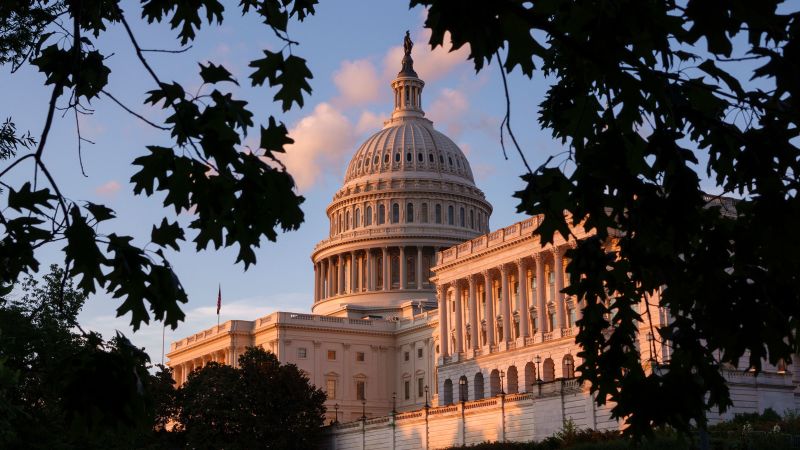The Senate is gearing up for a crucial moment in legislating President Donald Trump’s ambitious domestic policy proposal, often referred to as “the big, beautiful bill.” After prolonged negotiations, Senate Republicans are poised to hold a vote as early as next week. This moment represents a significant test for Republican Leader John Thune, who must navigate the complexities of the upper chamber and shape the decisions of the GOP senators, who face a clear choice: align with the president’s vision or diverge from it.
Amidst optimism, Thune has indicated that consideration of the bill may commence as early as mid-next week. This timeline necessitates a frenzied effort starting over the weekend, involving the drafting of the final text, securing votes, and resolving several key points of contention. The challenge lies in appeasing dissenting voices within the caucus without altering the bill so drastically that it jeopardizes passage in the House of Representatives, where it narrowly advanced by just one vote.
Next week is poised to be a decisive period, often characterized by critical decisions that have been deferred until now. Republican members and aides have indicated that, should everything proceed according to plan—an uncertain assumption at best—the debate could officially begin by Wednesday, marking the start of a 20-hour deliberative process on the legislation. Moreover, there is consideration for a rapid series of votes—a so-called vote-a-rama—potentially commencing Thursday evening and extending into Friday. The prevailing goal remains to finalize the legislative process by the week’s end.
In the days leading up to the anticipated vote, a plethora of technical adjustments and negotiations must occur to ensure the bill is suitably prepared for consideration on the Senate floor. Some negotiations will address substantial language issues, while others might be designed to provide members with a pathway to support the legislation, as many Republicans express a desire to align with the president.
A critical hurdle in this legislative process is the Byrd Bath, a crucial procedure facilitated by the Senate parliamentarian to verify that all provisions of the bill adhere to strict Senate rules. These rules enable Republicans to pass the bill with only a simple majority, eliminating the need for the customary 60 votes required to overcome a filibuster. The nuanced guidelines outlined in the Budget Control Act demand that legislative provisions yield more than an incidental budget impact for them to qualify.
The Byrd Bath process is named in honor of former Democratic Senator Robert Byrd of West Virginia, who established the guidelines to deter the exploitation of the reconciliation process. The procedures entail private discussions between the committee staff members and the parliamentarian to ascertain whether specific provisions align with the established parameters. A significant undertaking of this nature is anticipated from the Senate Finance Committee, as many of the bill’s tax and healthcare components fall under its authority.
While several committees have commenced this process, notable hurdles remain, particularly in the areas of state and local tax deductions, Medicaid protections for rural hospitals, and the future of green energy tax credits. The Senate’s stance on state and local tax deductions, particularly toward high-tax states like New York and California, is a contentious issue. Despite the House increasing the cap on these deductions, Senate members are reluctant to adjust these provisions.
Furthermore, concerns regarding Medicaid changes have been articulated by a cohort of Republican senators, notably led by Sen. Susan Collins of Maine. They advocate for the establishment of a stabilization fund to protect rural healthcare facilities amidst proposed alterations to Medicaid reimbursement structures. This fierce negotiation underscores the Senate’s precarious balance as they aim to unify their approach while facing pressure from House Republican factions.
Once the Senate approves its iteration of Trump’s legislation, the bill will transition to the House. There, Speaker Mike Johnson and the GOP must deliberate over whether to accept the Senate’s modifications or engage in extensive negotiations. This decision will weigh heavily on the party’s ability to enact substantial policy while ensuring cohesion within their ranks. Each step taken in this intricate legislative dance will ultimately shape the direction of Trump’s policy ambitions and the Republican Party’s unified front moving forward.



